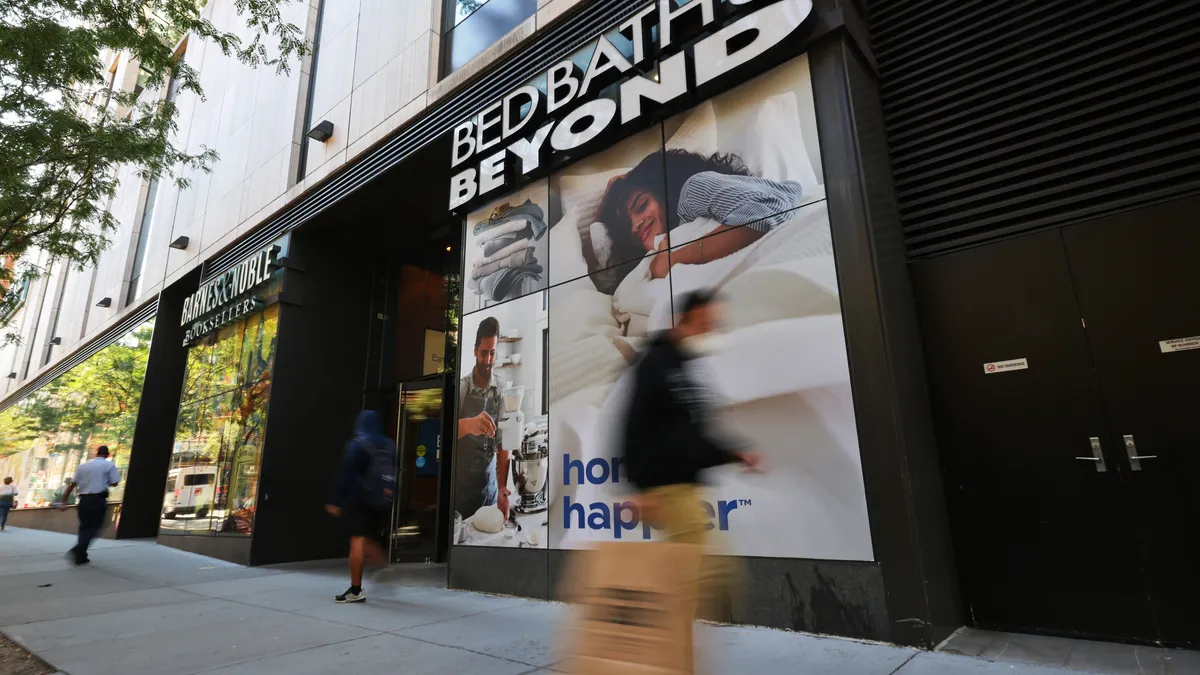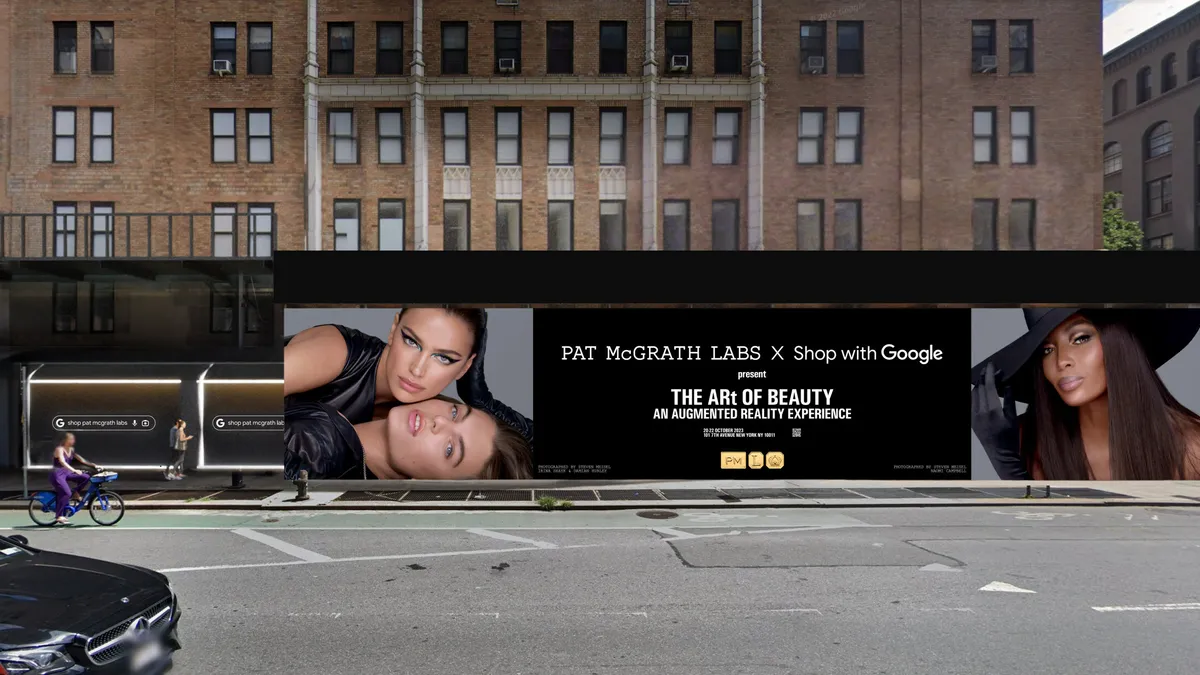Last week, a San Francisco startup shook the retail industry with a bold claim — it plans to make bodegas and corner mom-and-pop shops obsolete.
In an interview with TechCrunch, Bodega co-founder Paul McDonald argued that there are only two options today when it comes to shopping. “You can go to the store or you can order something online. What we’re trying to do is introduce a third option, a new way of buying things," he said. "Shrink the store, bring the best parts in a smaller form factor and bring it to where you are."
Bodega, a company named after the very thing it's set to destroy, was launched by two ex-Googlers with the idea that instead of visiting their corner bodega — a cultural staple in many communities — consumers could pull out their phones to unlock a box with shelves of curated items relevant to that location. Without any human interaction, consumers could pull items off the shelf and simply walk away, receiving a bill later for products they took.
In McDonald's perfect world there will one day be 100,000 Bodegas spread across the country. In fact, he said, the boxes could become so ubiquitous that there will be "one always 100 feet away from you," he told Fast Company.
While some shuddered at the thought of an automated vending machine concept replacing brick-and-mortar retail — others laughed. In the days since Bodega's debut, the company has sparked such an outrage among consumers that it has been trending on Twitter for days, with many criticizing Bodega for cultural appropriation. Not long after the company's launch, The Washington Post dubbed it "America's most hated startup."
While the founders initially noted in interviews that they were not concerned about coming off as culturally insensitive, McDonald conceded in a note published on the company's blog last week. "Despite our best intentions and our admiration for traditional bodegas, we clearly hit a nerve this morning, we apologize. Rather than disrespect to traditional corner stores — or worse yet, a threat — we intended only admiration," he wrote "We’re here to learn and improve and hopefully bring a useful, new retail experience to places where commerce currently doesn’t exist."
As retail experts wrap their heads around the potential impact or implosion of the new concept, the discussion forum RetailWire asked its BrainTrust panel the following questions:
- What do you see as the pros and cons of the Bodega vending machine concept?
- How do you feel about the name?
- To what degree do you see internet-connected vending machines replacing traditional retail?
Here are nine of the most provocative and insightful comments from that discussion. Comments have been edited by Retail Dive for length and clarity.
1. Out of touch
Joanna Rutter, Marketing, Dor: It’s incredibly out-of-touch. This is not a neutral candy dispenser or a helpful kiosk for buying earplugs in an airport. This is reappropriating a type of business that is traditionally owned by, or operated by, people of color and/or immigrants in neighborhoods where large supermarkets or other businesses choose not to plant roots. To lift that name and slap it onto an otherwise-nondescript vending machine concept is to mock the role bodegas play in the communities they serve. The fact that these vending machines will largely be placed in wealthier neighborhoods or apartment complexes who don’t frequent actual bodegas adds to my disgust. What’s in a name? Everything, in this case. Cultural context matters. Do your homework, "Bodega."
2. Brilliant marketing
Peter Fader, Professor of Marketing, The Wharton School of the Univ. of Pennsylvania:
Brilliant move on their part (or pure luck). This is a mundane business: vending machines for businesses — not very interesting. But this has been priceless PR, which they will take all the way to the bank.
3. The Silicon Valley way
Doug Garnett, Founder and CEO, Atomic Direct: Fundamentally, the idea of expansion with smart vending machines is a good business idea — in that musty, dusty old way where people seek profit through operations. The problem with Bodega is they’ve approached it the Silicon Valley way. That means they can’t just be good business, they have to kill something old because they’ve appeared. It’s one of the incredible dysfunctions the VC culture has created.
4. Not a home run, but a stand-up double
Warren Thayer, Editorial Director and Co-Founder, Frozen and Refrigerated Buyer:
It’s convenience and immediate gratification and, from what I can see, it’s targeted to a different consumer demographic than the bodega shopper. Having shopped bodegas when I lived in NYC, and still today when I visit, I think it’d be impossible for Bodega to put them out of business or even have a major impact. If you know anything about the amazing merchandising mix and personality of bodegas, you know what I mean. I think the concept will work. Is it a home run? No. But a stand-up double, for sure. Not bad.
5. Convenience will win
Shep Hyken, Chief Amazement Officer, Shepard Presentations LLC:
Anything that makes doing business more convenient is worth exploring. The concept of merchandise in vending machines is not new. The concept that Bodega is thinking about is more of a multiple location strategy. The way the machines work is innovative, but still it is a vending machine. Another plus is that if the location isn’t working, just move the machine to another location. As for the name, it doesn’t bother me. I like it. Any competitive issues that hurt local retailers won’t happen because they named a vending machine Bodega.
6. You can't beat classic
Phil Chang, Retail Influencer, Hubba:
Changing with the times impacts everybody. The classic bodega hasn’t changed in many many generations. Nothing wrong here from my perspective, many cultures already do this.
If you head to Japan, they sell pretty much anything you want from a vending machine. Bow Wow Bones is a food truck service for Pets, based in Austin, TX and they also have vending machines for pet-focused products. I like the thought of having these new bodegas — they’ll be able to get me things I need, but I’ll still stop at a local New York City bodega to get a sandwich that nobody else makes.
7. Redbox of general merchandise
Ricardo Belmar, Sr Director, Worldwide Enterprise Product Marketing, InfoVista:
I’d say the name reflects a lack of creativity for the product offering. At the same time, I don’t think this is a new concept. While the idea of relying heavily on machine learning to identify the top 100 products to stock has some novelty to it, why wouldn’t any retailer interested in the same idea follow exactly the same approach? Best Buy has proven this can work with the right assortment, and we’ve seen that Uniqlo is replicating the approach in airports for apparel.
Maybe they want to be the Redbox of general merchandise, but I didn’t see a nod to franchising in their description. Will have to wait and see if this idea really takes off or not, or if other retailers just copy the idea.
8. Try better testing next time
Min-Jee Hwang, Director of Marketing, Quad Analytix: This blunder could have been avoided with better user testing. The CEO explained in a Medium post that they did some, but clearly they did not talk to enough people from various backgrounds about the name and overall concept.
Walking through major airports you see vending machines with, say, Benefit Cosmetics or noise canceling headphones. The companies that run these vending machines have made this concept a success, beyond the food and drink vending machines we’ve had around for years. In-store retail is still where the vast majority of consumers buy products, but if these pantries can bring commerce to a place where it didn’t previously exist, then that will benefit the retail industry overall.
9. Who sets the prices?
William Hogben, CEO, FutureProof Retail: Naming it Bodega isn’t a blunder, and a startup at this early of a phase isn’t likely to have discovered it’s ideal name yet anyway. I’d be glad for one of these boxes in my apartment building or office. Tracking items with the camera is a fun way to do it and I could see these things replacing hotel mini-bars as well. The real questions are: Who owns the device? Who stocks it? Who sets the prices?
Maybe it makes sense for them to focus less on selling product and more on simply tracking as items move in and out. For example, I’d gladly share one set of tools with all my neighbors for how infrequently I need most of them — tracking that with the camera box might be a more compelling case for us than getting quick snacks.





















